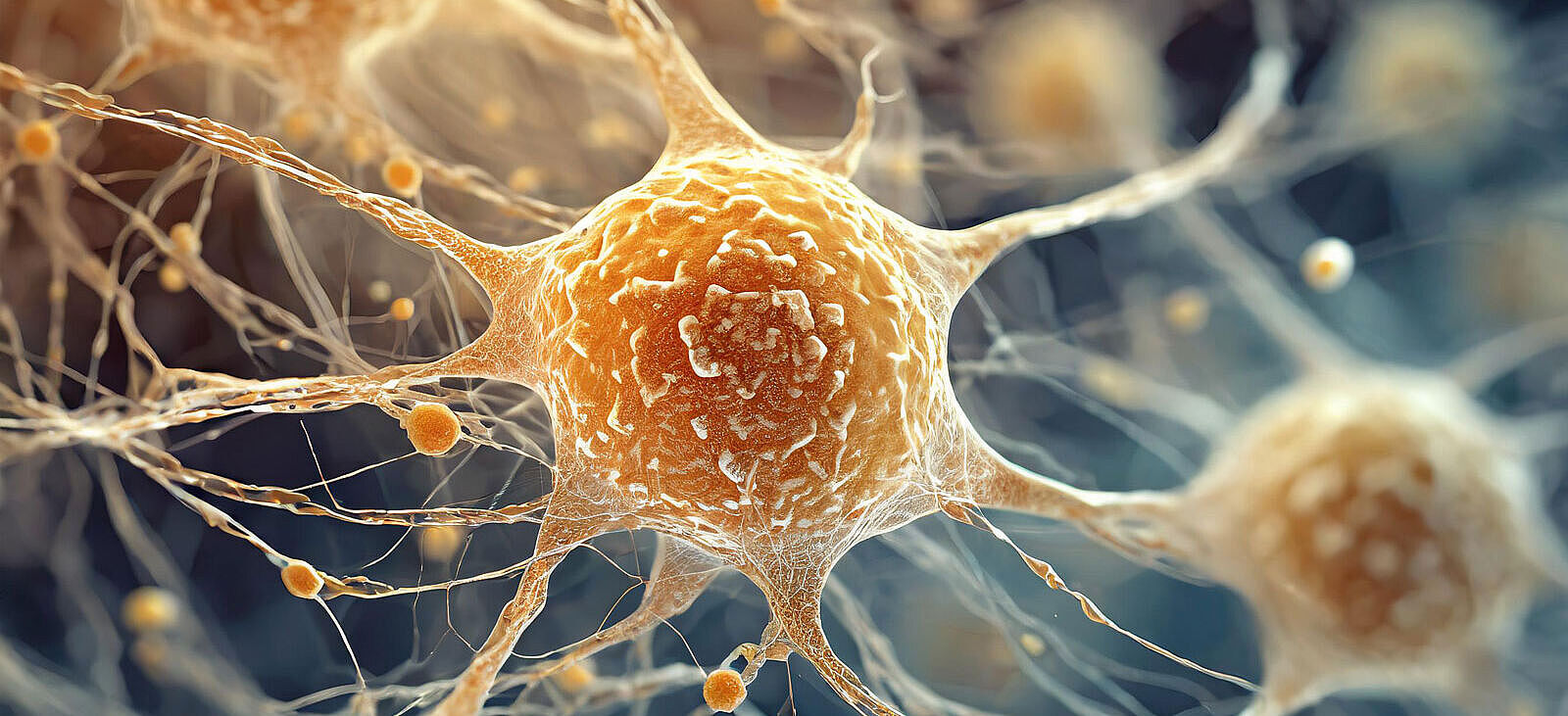Alzheimer’s: no risk for infection in everyday contact with patients, despite evidence of transmissibility under extremely rare conditions
Study in „Nature Medicine“
Researchers from the UK report in the scientific journal Nature Medicine (issue January 29, 2024) that in rare cases, Alzheimer’s disease could be transmissible – as a result of special medical procedures in which brain-derived material is transferred between individuals. In medical jargon, this is referred to as “iatrogenic” (medically induced) transmission. However, the findings do not indicate that Alzheimer’s could be contagious in everyday contact with people with the disease.
“There is no evidence that Alzheimer’s is an infectious disease, in other words that it could be contagious. The now published results do not change this assessment. Dealing with Alzheimer’s patients and caring for them does not pose a risk,” emphasizes Prof. Christian Haass, biochemist and speaker for DZNE’s Munich site. “The findings that are currently being discussed refer to very special cases in which people were treated with hormones derived from the brain tissue of deceased persons. In addition, they are based on a small and complex data set. A certain degree of skepticism is therefore justified when interpreting these data. If cases of acquired Alzheimer’s disease as discussed here actually exist, they are likely to be extremely rare.”
Key points of the publication
The current study, published in the journal “Nature Medicine”, comes from a team of scientists at University College London (UCL) and follows on from earlier studies by the same research group. This time, the findings are based on eight adults who received growth hormones in their youth; these hormones were derived from cadaveric brain tissue – a procedure that is no longer applied today. Around 30 years after the treatment, five of the eight subjects studied developed cognitive impairments that met the criteria for Alzheimer’s disease. Of the remaining three individuals, one had mild memory problems, another had only subjectively perceived symptoms and the third was asymptomatic – although blood biomarkers showed abnormalities typical of Alzheimer’s disease.
Ultimately, this publication is about so-called amyloid-beta peptides. These proteins are naturally produced by the human organism and are usually broken down. In Alzheimer’s disease, however, these molecules change their normal configuration and accumulate in the brain in the form of microscopic deposits known as “plaques”. Based on various data and observations, the UCL researchers suspect that the aforementioned hormone preparations were contaminated with abnormal amyloid-beta peptides and that these proteins were transferred through the treatment. This triggered a prolonged process that led to Alzheimer’s disease years later.
The authors of the study explicitly point out that such a transmission of Alzheimer’s is likely to be rare, especially as growth hormones derived from deceased individuals are no longer administered today. At the same time, they emphasize the need to prevent the transfer of aberrant amyloid-beta peptides through other medical procedures.
Discussion about the disease mechanism
The current publication should also be seen against the background of theory on the mechanism of Alzheimer’s disease that has been discussed for some time: According to this theory, abnormal amyloid-beta peptides gradually impose an equally abnormal shape on other, initially normal amyloid-beta peptides. This domino effect causes the pathological process to spread throughout the brain. Thereby, the proteins accumulate into ever larger aggregates, from which smaller fragments (called “seeds”) can detach, further spreading the pathological events. Laboratory and animal experiments support this theory. In humans, such a phenomenon is known from the very rare but fatal prion diseases such as Creutzfeldt-Jakob disease. These brain diseases are triggered by pathogenic, abnormally folded proteins called “prions”. Transferability of Alzheimer’s disease would be proof that even small amounts of abnormal amyloid-beta peptides can trigger a pathological cascade in humans, as is the case with prion diseases.
“The present study results are highly interesting, but they should be considered with caution given that the database includes only a small number of people. Nevertheless, they fuel the discussion about a prion-like mechanism in Alzheimer’s disease,” says Prof. Mathias Jucker, neurobiologist and research group leader at DZNE’s Tübingen site. “If such a mechanism actually underlies Alzheimer’s disease, this would be a compelling argument in favor of amyloid-beta as an essential target for therapy. In fact, the latest Alzheimer’s drugs address this protein and slow down disease progression to some extent. However, they mainly aim at comparatively large aggregates of amyloid-beta. In the case of prion-like behavior, however, it would make sense to target even the smallest aggregates of this molecule with appropriate agents. This could be a chance to tackle the pathological process at its roots.”
“One aspect that is also relevant in this context is the handling of biomaterial that is known to contain or could potentially contain aberrant amyloid-beta peptides. This applies to brain operations, for example, but also to experiments in research laboratories. In general, I consider the risks associated with this to be low. What’s important is that existing safety measures are consistently followed and constantly adapted to the new findings,” Jucker says.
Further information
Original publication
Iatrogenic Alzheimer’s disease in recipients of cadaveric pituitary-derived growth hormone.
Banerjee et al. Nature Medicine (2024).
https://www.nature.com/articles/s41591-023-02729-2
Comment („News & Views“)
Evidence for iatrogenic transmission of Alzheimer’s disease.
Mathias Jucker & Lary C. Walker.
Nature Medicine (2024).
https://www.nature.com/articles/s41591-023-02768-9
January 2024

